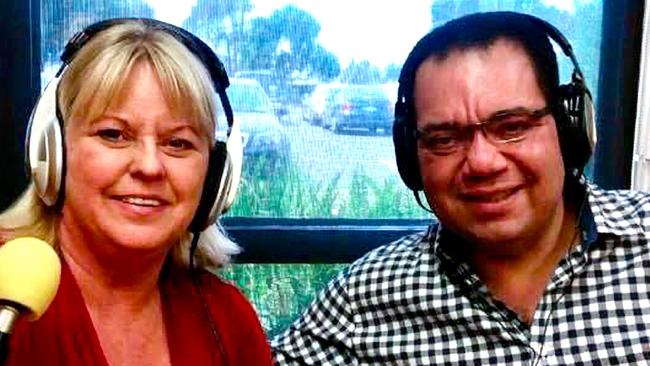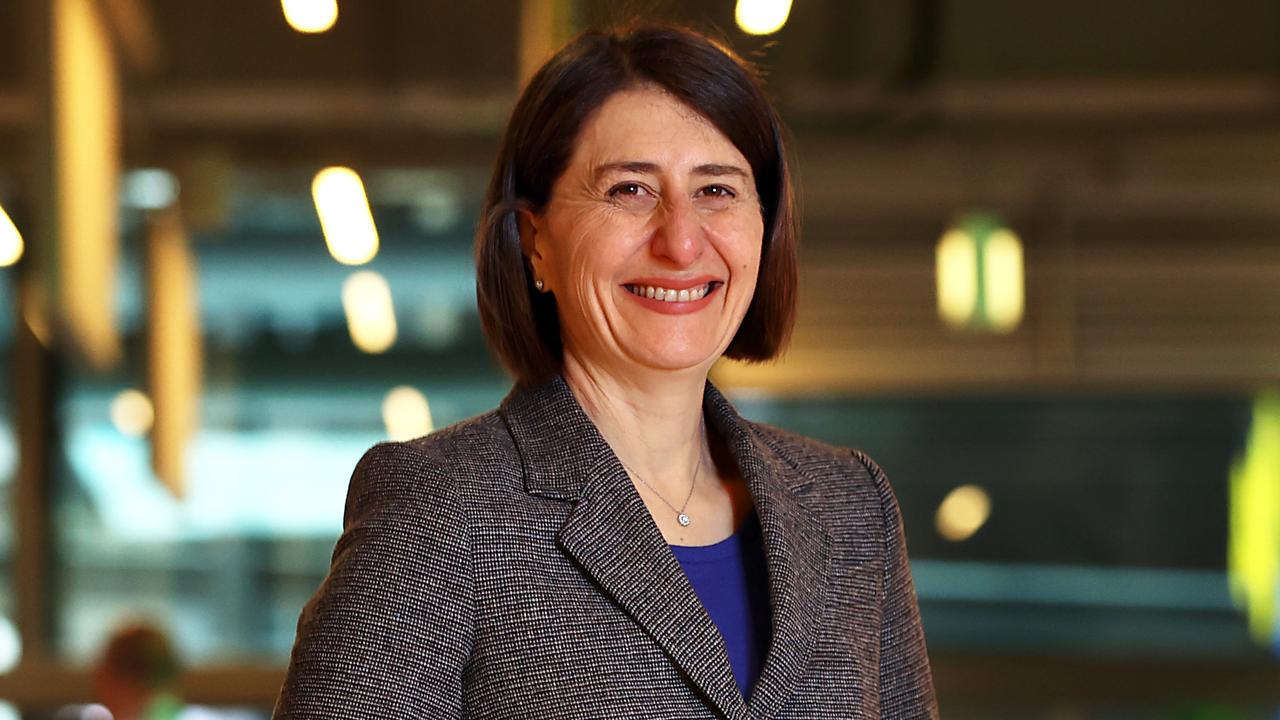IBAC blamed for mayor’s death
Former Casey mayor breaks two-year silence to blast IBAC over suicide of Amanda Stapledon.

The major target of an investigation into allegedly corrupt land deals has accused Victoria’s anti-corruption watchdog of imposing “capital punishment” on a former mayor who took her own life.
Breaking a two-year public silence on the investigation into Casey council, Sam Aziz has blamed the Independent Broad-based Anti-corruption Commission for the death of Amanda Stapledon.
Mr Aziz, a three-time mayor of Casey, claimed IBAC’s lengthy Operation Sandon and its public hearings have destroyed the lives of multiple witnesses and drove Stapledon to take her life.
“IBAC exacted capital punishment on Amanda for what is, at worst, a petty offence because of the way it conducted this investigation,” he told The Weekend Australian.
Stapledon took her life on January 17-18, just three days after receiving a draft copy of IBAC’s report into her involvement in the allegedly corrupt Casey land deals involving property developer John Woodman.
“Don’t prosecute us and execute us in the public domain without a single shred of credible evidence. That’s what they have done to us, they have acted as judge, jury and executioner all at once,” Mr Aziz said.
Responding to the former mayor’s criticism, IBAC CEO Marlo Baragwanath said public hearings were a “key investigative tool to allow IBAC to fulfil its primary function of exposing public sector corruption”.
“IBAC’s examinations are generally held in private. Public examinations can only be held if it is in the public interest, and a public examination would not cause unreasonable damage to a person’s reputation, safety or wellbeing,” Ms Baragwanath said.
“In addition, strong evidence must exist of conduct by a witness to justify publicly examining the witness – as was the case in Operation Sandon.”
Ms Baragwanath said IBAC was accountable to the Victorian Inspectorate for the conduct of its public examinations, which included an obligation to notify the VI with reasons for holding a public examination 10 business days before the hearing.
“IBAC takes its responsibility to look after the welfare of everyone involved in our work seriously, and we always work to improve the practices that support both complainants and witnesses,” she said.
Mr Aziz called on the Victorian coroner to launch a full public inquest into the death of Stapledon. “It is critical that there is a coronial inquest into Amanda’s death given all the circumstances. It would be a miscarriage of justice if that does not occur,” he said.
Police are compiling a report on the tragedy for the Victorian coroner but no decision has been made on whether there will be a full inquest.
Stapledon, 58, spent two days in the witness box in March 2020 being grilled by IBAC over allegedly receiving undeclared political donations from Mr Woodman.
Multiple friends and former council colleagues have blamed Stapledon’s death on IBAC and the Victorian Inspectorate, the agency that monitors the watchdog, saying the agencies failed to act on warnings that witnesses were in danger.
IBAC’s case against Stapledon centred on an undeclared $25,000 political donation in 2014 from Mr Woodman, and her friends have said the marathon investigation and the uncertainty of her fate fuelled her anxiety and left her paranoid and depressed on top of the humiliation of public hearings.
Mr Aziz said the lengthy investigation and IBAC’s decision to hold public examinations played a significant role in the tragic death of the mother of an disabled adult son.
“Amanda was a very well grounded person,” he said.
“She would be the last person I would ever have imagined to have taken her life. She was always very strong, very chirpy, very committed and very powerful and an inspiration in every sense of the word.
“This is not a person I would have imagined in a million years would have taken her own life. And for her to be treated the way IBAC treated her and to be paraded in this fashion and have allegations thrown about for two years without conclusion pushed her to the brink.
“For such a strong person to have taken such an action is inexplicable. There would have to have been some sort of trigger that would have put her in such a depressive state. And that trigger can only have been IBAC.”
During his public examinations across five days, Mr Aziz was grilled about his relationship with Mr Woodman and IBAC accused him of pocketing $900,000 in commissions in return for supporting his property deals.
In a written complaint last year to the VI, Mr Aziz slammed the watchdog’s witness welfare services, now subject to a parliamentary review in the wake of Stapledon’s suicide.
“IBAC’s pathetic so-called ‘welfare support service’ is at best cruel patronisation,” he stated.
“It did not work for Amanda Stapledon when she contacted them. IBAC’s efforts in this regard are analogous to throwing someone off a cliff, and then requesting that they do not hurt themselves on the way down to their inevitable demise! It is cruel in every sense of that word. Welfare can only be achieved through a private examination process, and not through the deliberately calculated public character assassinations that occurred, under the very low evidence quality threshold permitted by the IBAC legislation.
“IBAC failed to show in any instance that public money was lost or that lives were damaged. To the very opposite, there is irrefutable evidence of the high standards and quality of life that was delivered to the residents of the City of Casey by its elected government, of which I was Mayor for three full terms, and an elected Councillor for eleven years.
“To begin with, a significant portion of the alleged $900,000 was actually my own money invested with a developer in a mezzanine finance arrangement governed by a contract that IBAC had seized, and the remainder were sums paid to me under a consulting agreement, which IBAC had also seized.
“To falsely state that this amount was a ‘bribe’ is reckless at best, and malicious at worst, and it certainly achieved the desired effect of convicting me in the court of public opinion.”
Mr Aziz has questioned IBAC’s decision to hold public hearings in the Casey investigation, saying the examinations should have been conducted in private like Operation Richmond, the agency’s probe into dealings between the Andrews government and the United Firefighters Union.
“IBAC has chosen to humiliate local councillors in public. The allegation against us is that we got a commission or support for facilitating certain council decisions.
“There isn’t a single allegation that the public purse was touched because we actually ran this council the way you run a very efficient business, to deliver the biggest dividend possible for the ratepayers.
“Yet, in the case of the UFU investigation, they’ve done everything in private hearings. Why?”
The Egyptian-born former mayor says he flew to Cairo in late December and has been working as a part-time lecturer in the city of 10 million people since then. He says he was forced to head overseas to work because he couldn’t find employment in Melbourne in the fallout of the IBAC hearings.
“I have nothing to hide, I am in Cairo because I have exhausted all opportunities in Australia to try and get employment,” he said.
“Before this IBAC stuff started I could have had almost any job I wanted. My CV is that strong, and my experience is such that I was being offered opportunities left right and centre.
“After that (IBAC probe) I couldn’t get a job stacking shelves at Bunnings.
“I will need to come back but I also need to earn money to support my family. What am I coming back to? Am I coming back to be unemployed and to risk a complete deterioration of my mental health?”
If you or someone you know is at risk of suicide, call: Lifeline: 13 11 14 or lifeline.org.au; Beyond Blue: 1300 22 4636 or beyondblue.org.au



